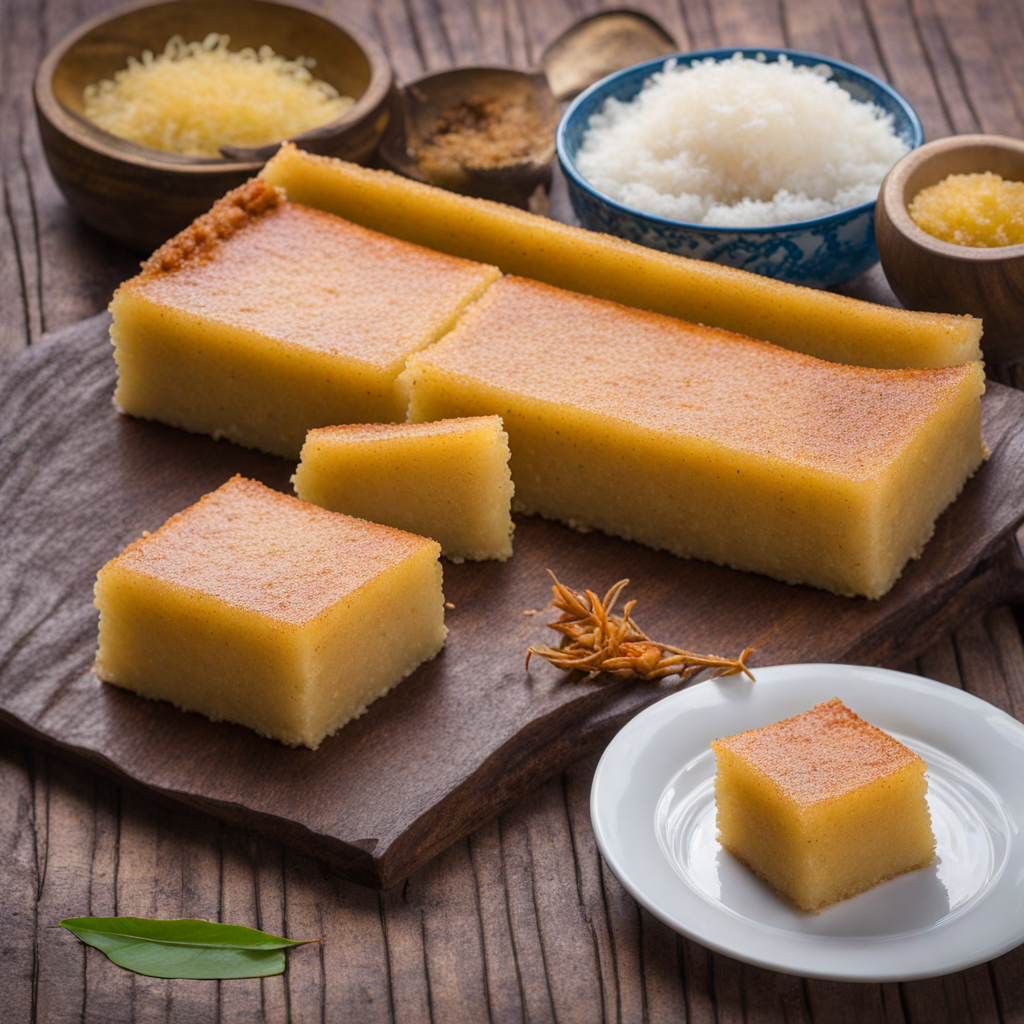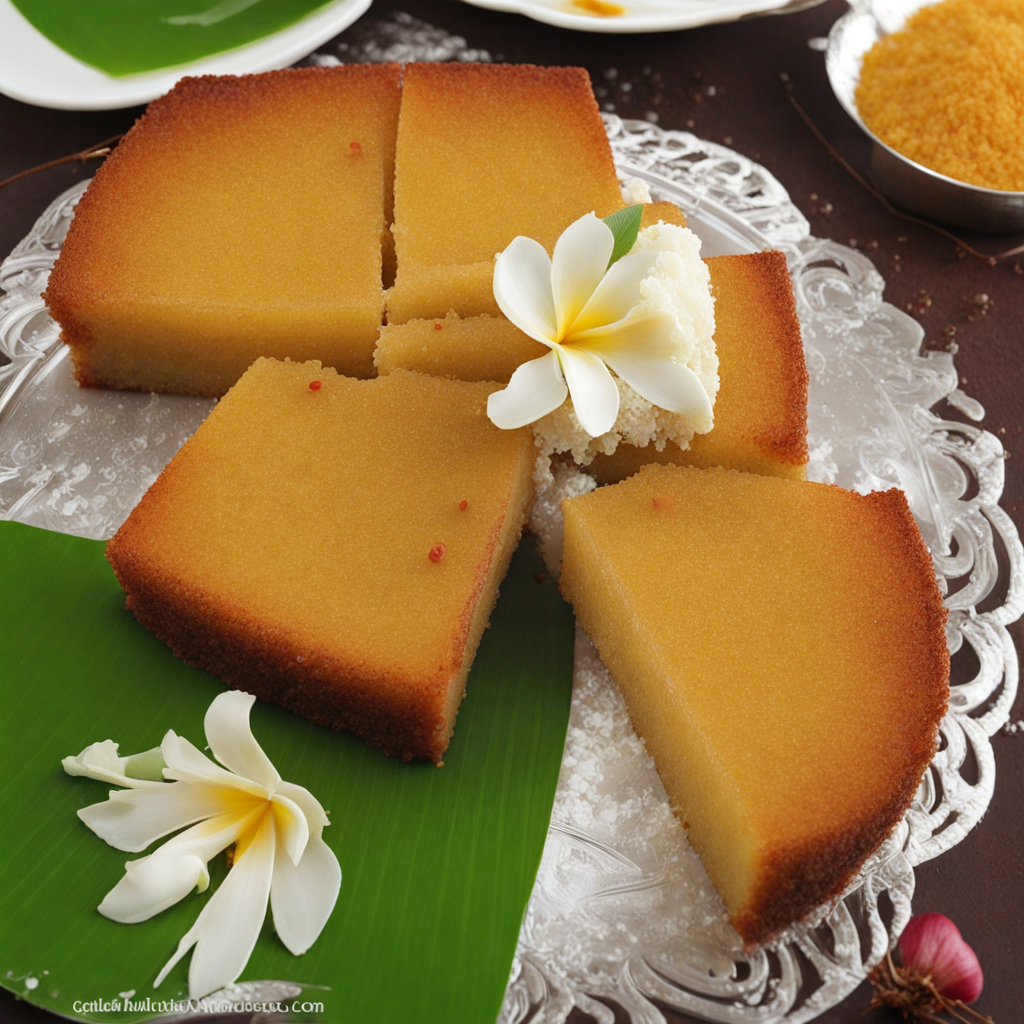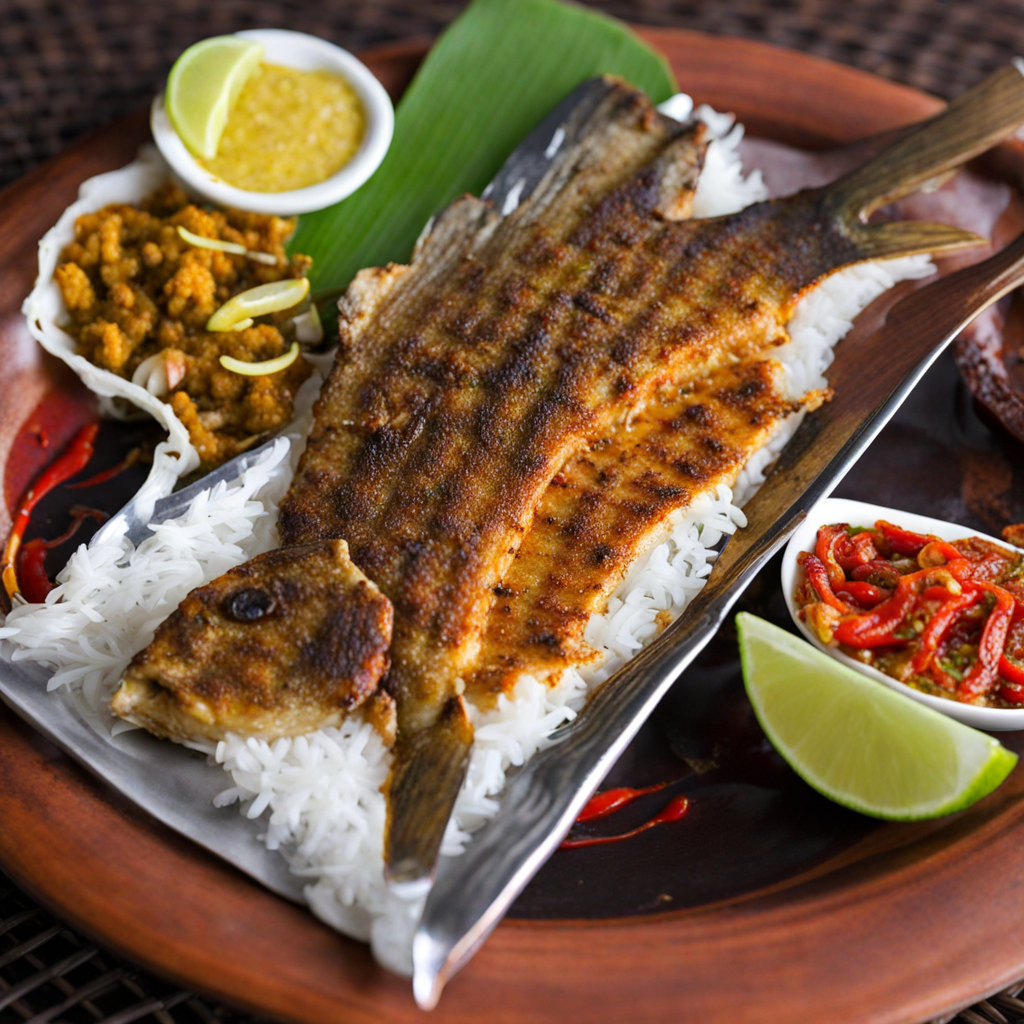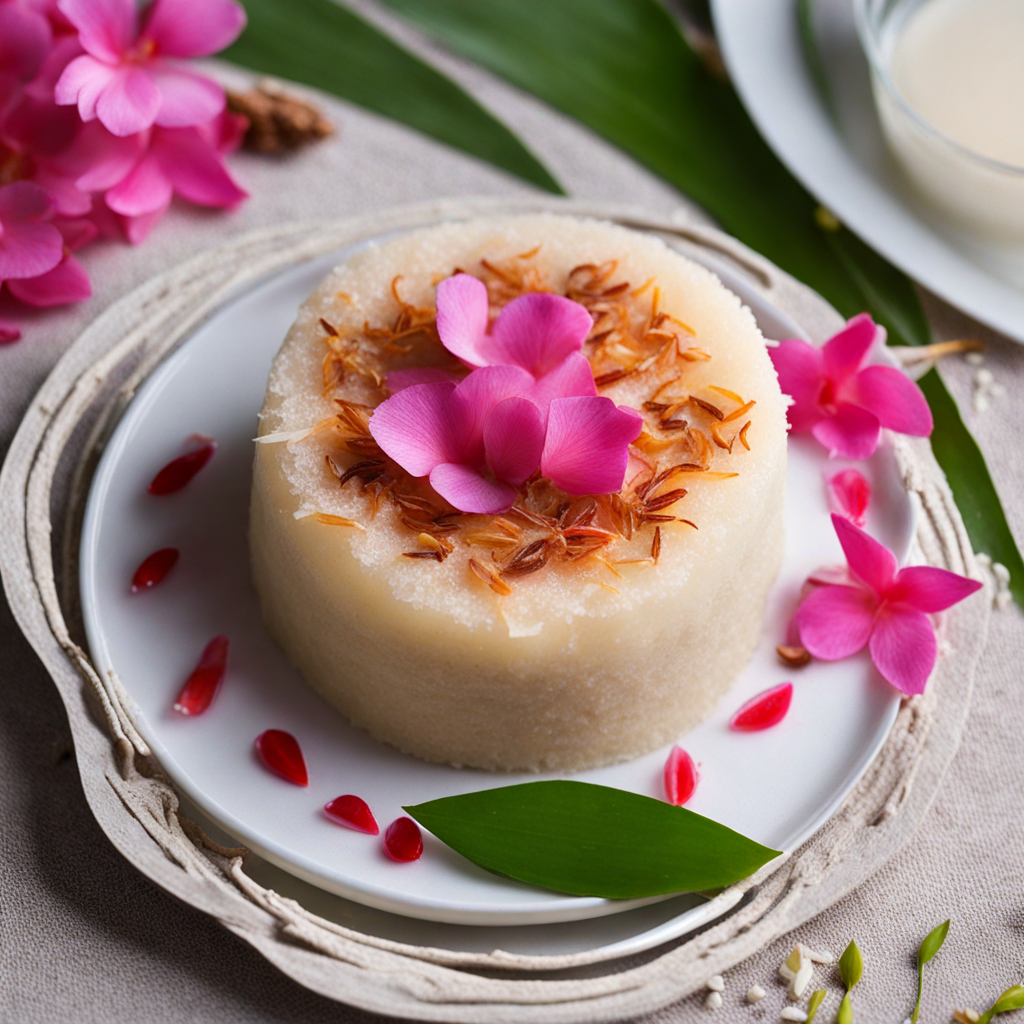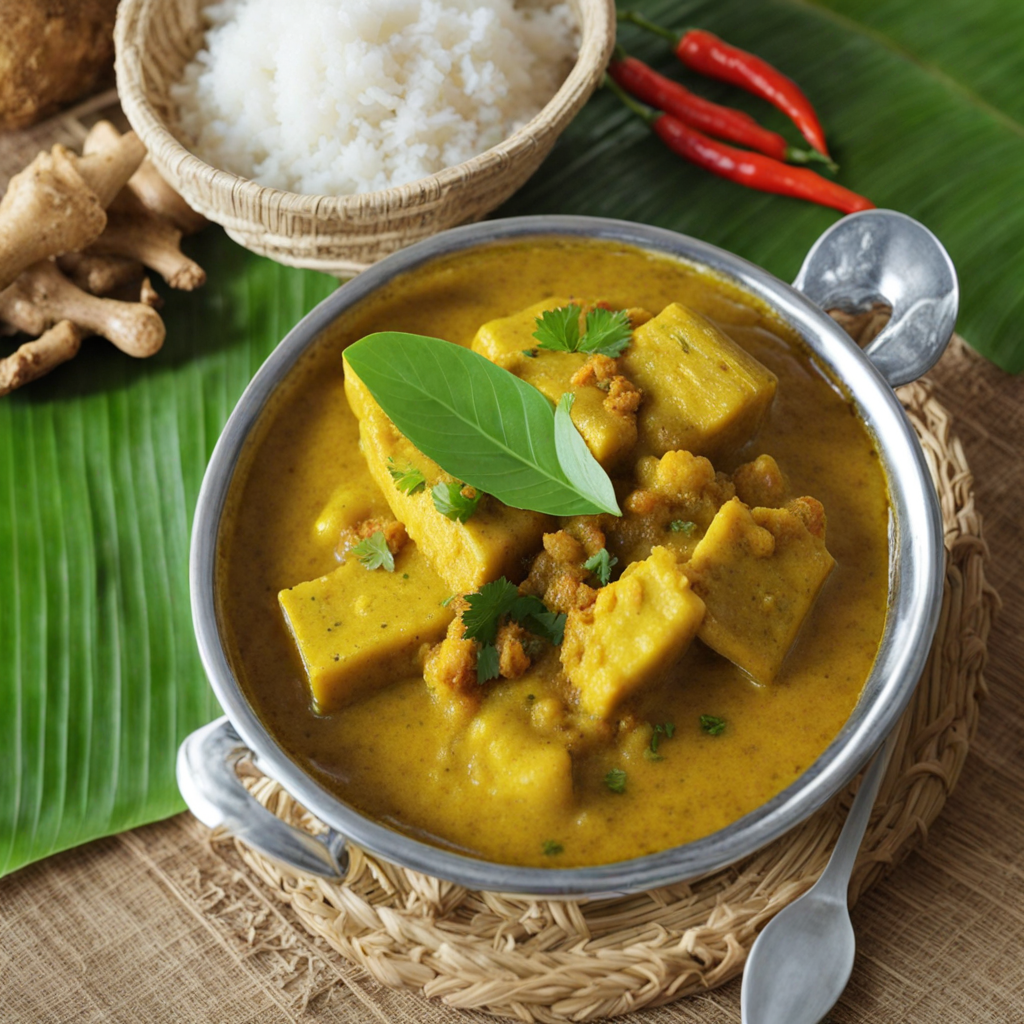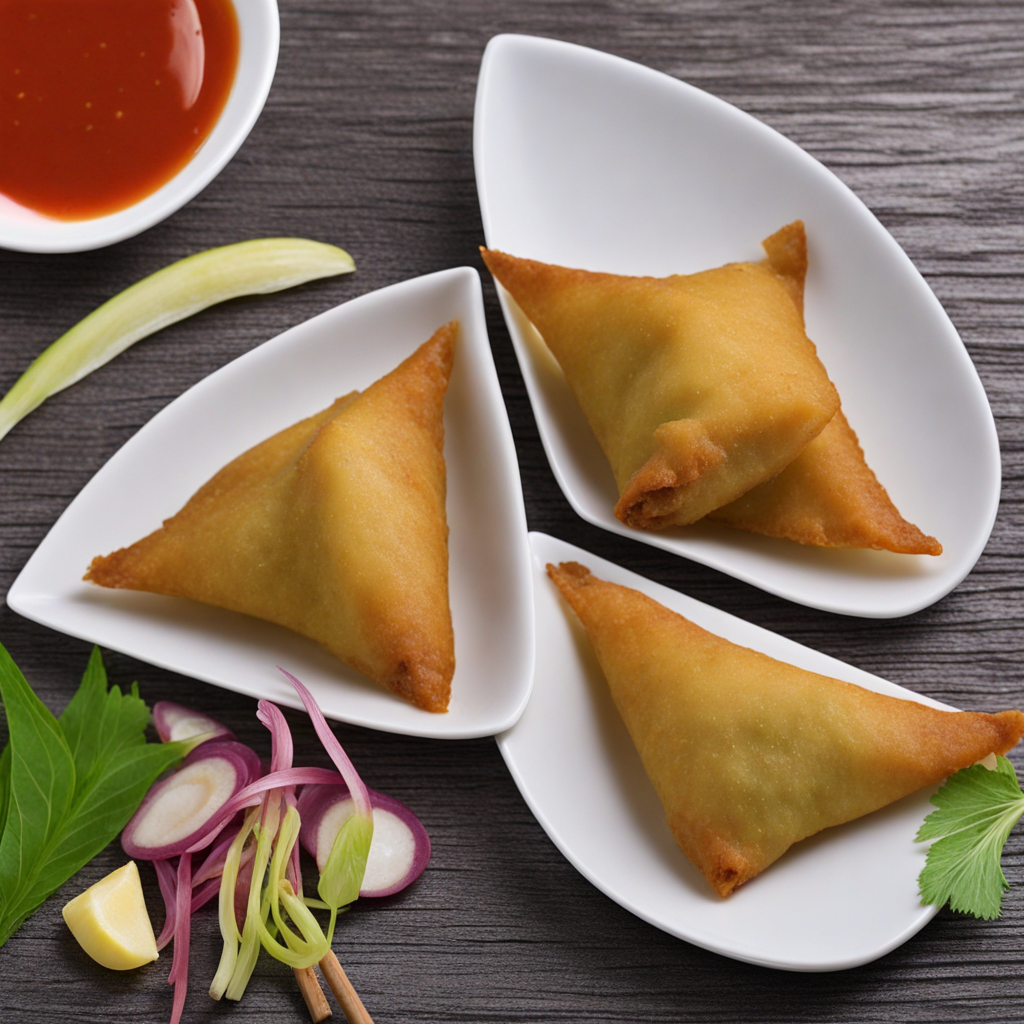Aluvi Boakibaa
Aluvi Boakibaa is a delightful Maldivian dish that showcases the rich culinary heritage of the Maldives, blending flavors and textures that resonate with its tropical surroundings. This unique dish is a type of savory cake, made primarily from grated cassava, which is a starchy root vegetable known for its subtle flavor and chewy texture. The cassava is combined with fresh coconut, which adds a natural sweetness and richness, along with a medley of spices, creating a harmonious balance that is both comforting and invigorating. The dish is often enhanced with the addition of fish, usually tuna, which provides a savory depth that complements the sweetness of the coconut and the earthiness of the cassava. The preparation of Aluvi Boakibaa is a labor of love, where the ingredients are meticulously mixed and then baked to perfection. The baking process gives the dish a golden-brown crust while maintaining a soft and moist interior, making each bite a delightful experience. When served, Aluvi Boakibaa is often cut into squares or slices, revealing a beautiful texture that is both inviting and satisfying. The aroma that wafts from the dish as it bakes is a tantalizing blend of coconut and spices, promising a flavor journey that is both nostalgic and exotic. Pairing Aluvi Boakibaa with a side of spicy chili sauce or a tangy dipping sauce elevates the taste experience even further, allowing diners to customize the heat and flavor to their liking. This dish is not only a staple during festive occasions but also a beloved comfort food for Maldivians, making it a perfect representation of the islands' rich culture and culinary traditions. For anyone looking to explore new flavors, Aluvi Boakibaa offers a captivating taste of the Maldives that is sure to leave a lasting impression.
How It Became This Dish
The Delicious Journey of އަޅުވި ބޮކިބާ (Aluvi Bokkibaa) - A Maldivian Delicacy #### Origins The Maldives, an archipelago of 1,192 coral islands, is renowned for its pristine beaches, crystal-clear waters, and vibrant marine life. Yet, beyond its natural beauty lies a rich tapestry of culture and culinary traditions. Among the many delightful dishes that stem from this island nation, އަޅުވި ބޮކިބާ (Aluvi Bokkibaa) stands out as a cherished traditional food that reflects the Maldives’ history, culture, and the deep connection of its people with the ocean. The name "Aluvi Bokkibaa" translates to "fish cake," and it embodies the essence of Maldivian cuisine, which is heavily reliant on fresh fish, particularly tuna, coconut, and rice. The dish’s roots can be traced back to the early inhabitants of the Maldives, believed to have arrived from South India and Sri Lanka. These settlers brought with them agricultural practices and culinary techniques that would influence Maldivian food for centuries. Historically, the Maldives has been a crossroads for various cultures and trade routes, where spices and ingredients exchanged hands. The use of tuna, particularly skipjack, became a staple due to the abundance of fish in the surrounding waters. The method of preserving fish using sun-drying and salting emerged early on, allowing communities to enjoy seafood year-round, which is crucial to sustaining life on the islands. #### Cultural Significance Aluvi Bokkibaa is more than just a dish; it holds cultural significance for the Maldivian people. Traditionally, it is served during special occasions, family gatherings, and festive celebrations, symbolizing hospitality and the communal spirit of the islands. The dish often accompanies other Maldivian specialties, creating a vibrant array of flavors that tell the story of the land and its people. The preparation of Aluvi Bokkibaa is typically a family affair, where members come together to create the dish, reinforcing bonds and fostering a sense of community. The act of cooking and sharing food is deeply embedded in Maldivian culture, and Aluvi Bokkibaa is a testament to this tradition. In addition, the dish showcases the importance of fish in Maldivian life, not only as a source of sustenance but also as a means of livelihood. Fishing is a prominent industry in the Maldives, and the government has recognized the significance of sustainable fishing practices to preserve marine biodiversity. Aluvi Bokkibaa, made from fresh fish and local ingredients, serves as a reminder of the islands' reliance on the ocean and the need to protect these valuable resources for future generations. #### Development Over Time As the Maldives evolved, so too did its culinary landscape. The introduction of new ingredients and cooking techniques, particularly during the colonial period, has influenced the evolution of Aluvi Bokkibaa. The British colonial presence in the Maldives from the 19th century to the mid-20th century brought new spices and culinary practices that enriched local cuisine. The traditional recipe for Aluvi Bokkibaa has seen variations across different atolls, with each region adding its unique twist. While the core ingredients remain consistent—fresh fish, grated coconut, rice flour, and spices—regional differences in the way the dish is prepared and served have emerged. In some areas, for instance, the fish may be marinated with local spices before being incorporated into the cake, lending a distinct flavor profile. The preparation methods have also adapted over time. While traditionally made by hand, the advent of modern kitchen equipment has introduced new ways to prepare Aluvi Bokkibaa, allowing for greater efficiency and consistency. However, many families still prefer the traditional methods, believing that the labor of love involved in hand preparation imbues the dish with a deeper significance. In contemporary times, the globalization of food culture has introduced Aluvi Bokkibaa to a wider audience. As the Maldives has become a popular tourist destination, the dish has found its way onto menus in resorts and restaurants, often accompanied by fusion elements that adapt to international palates. Chefs are experimenting with flavors, creating innovative versions of Aluvi Bokkibaa while still honoring its traditional roots. While the core recipe remains cherished, the dish is also being adapted for modern dietary preferences. With an increased focus on health and wellness, variations using alternative ingredients such as quinoa or gluten-free flours are being explored, allowing a broader audience to enjoy this beloved Maldivian delicacy. #### Conclusion Aluvi Bokkibaa is more than just a fish cake; it is a representation of the Maldives' rich history, cultural heritage, and communal values. From its origins in the early settlements of the islands to its evolution over time and its role in contemporary Maldivian cuisine, Aluvi Bokkibaa embodies the spirit of the Maldivian people—resilient, connected to the ocean, and deeply appreciative of the traditions that have shaped their culinary identity. As the Maldives continues to navigate the challenges of modernization and globalization, Aluvi Bokkibaa remains a beloved dish, serving as a bridge between past and present. It is a reminder of the importance of food as a cultural artifact, a means of connection, and a celebration of the natural resources that sustain life on these beautiful islands. In every bite of Aluvi Bokkibaa, one can taste the legacy of generations, the harmony of flavors that define Maldivian cuisine, and the warmth of a culture that thrives on community and shared meals. As this dish continues to evolve, it will undoubtedly remain a cherished emblem of the Maldivian way of life, inspiring future generations to uphold the traditions that make their culinary heritage so unique.
You may like
Discover local flavors from Maldives


